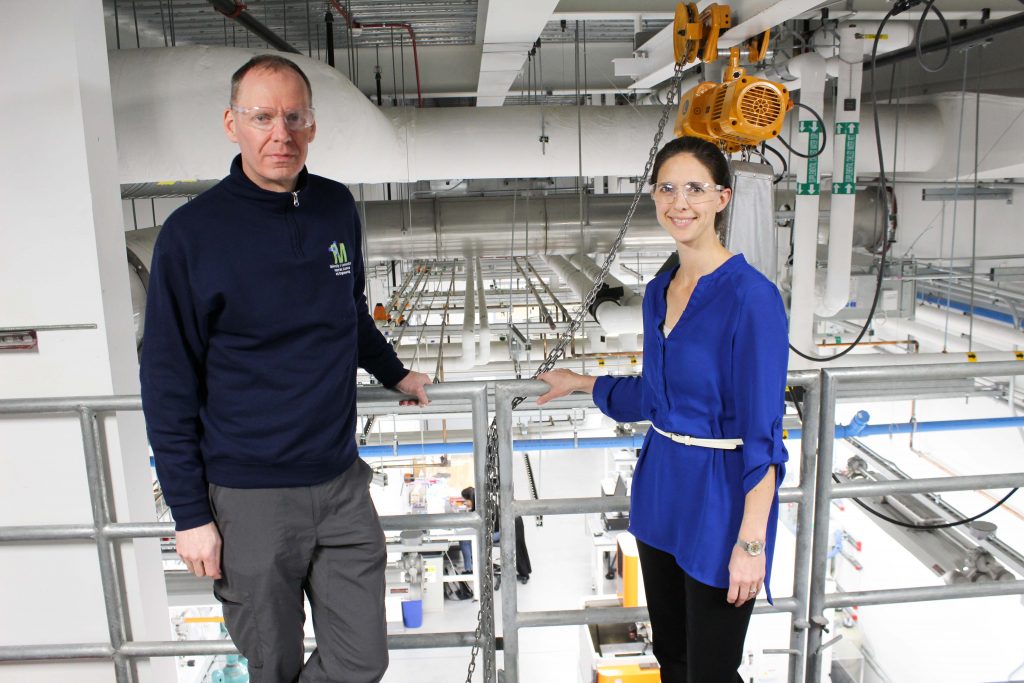
Executive Director, Office of Communications
Jessica McBride, PhD
Dr. Jessica McBride is the Executive Director of the Office of Communications at UConn's College of Agriculture, Health and Natural Resources. She is responsible for developing and implementing communications and marketing strategies to highlight the College's unique research strengths, outstanding academic offerings, and extensive community impact. An alum, Jessica earned her Ph.D. from UConn in 2017.
Author Archive
COR²E Statistical Consulting Services Supports Research at UConn and Beyond
Research needs data. UConn’s Statistical Consulting Services provides support on research projects at the university and beyond.
March 4, 2020 | Anna Zarra Aldrich '20 (CLAS), Office of the Vice President for Research
Did You Know UConn Invented That?
Research from universities drives innovation throughout the economy, and UConn has been no slouch when it comes to inventions.
February 11, 2020 | Jessica McBride, PhD
Tackling the Opioid Crisis with a Warmer Touch
UConn is partnering with Waterbury police and health officials on an innovative new program to help people recover from addiction.
February 10, 2020 | Jessica McBride, PhD
Enriching Communicative Environments After Stroke
UConn researcher Jennifer Mozeiko recently received a $25,000 grant from the American Speech-Language-Hearing Foundation and is currently recruiting participants in a study to investigate language use in the home environments of people with aphasia.
February 3, 2020 | Samantha Korittke '21 (CLAS), Office of the Vice President for Research
UConn Entrepreneurship Program Celebrates Major Milestone
One hundred teams have participated in the rigorous Accelerate UConn innovation program since its inception five years ago.
January 30, 2020 | Jessica McBride, PhD
Erik Brine Makes Waves at National Institute for Undersea Vehicle Technology
With over 20 years of experience in national security and military leadership, Erik Brine now leads the National Institute of Undersea Vehicle Technology, a collaborative effort between academia, industry, and government.
January 28, 2020 | Jessica McBride, PhD
A Deep Dive into the Gene Pool
A UConn engineer and his lab have won funding from NSF to develop robust computational models for ancestry hunting using DNA.
January 28, 2020 | Samantha Korittke '21 (CLAS), Office of the Vice President for Research
New UConn Research Center Provides Reliable Data, Realistic Simulations for Manufacturing Industry
UConn recently launched the Center for Materials Processing Data (CMPD) with university and industry collaborators to provide the manufacturing industry with valuable data about materials performance, eliminating timely and costly trial and error upon which the industry has relied for years.
January 23, 2020 | Anna Zarra Aldrich '20 (CLAS), Office of the Vice President for Research
Better Medicine: Opioid Epidemic and Workers’ Comp
In partnership with the US Department of Labor, a team from UConn's School of Medicine and Mathematica will identify opioid prescription management strategies for payers and organizations administering workers’ compensation benefits.
January 22, 2020 | Samantha Korittke '21 (CLAS), Office of the Vice President for Research
UConn Startup Brings Collaborative Robotics to Children with Special Needs
Movia Robotics, Inc. (Movia), based in Bristol, Connecticut, has developed technology that helps children on the autism spectrum with social skills, learning readiness, and academics.
January 8, 2020 | Jessica McBride, PhD









